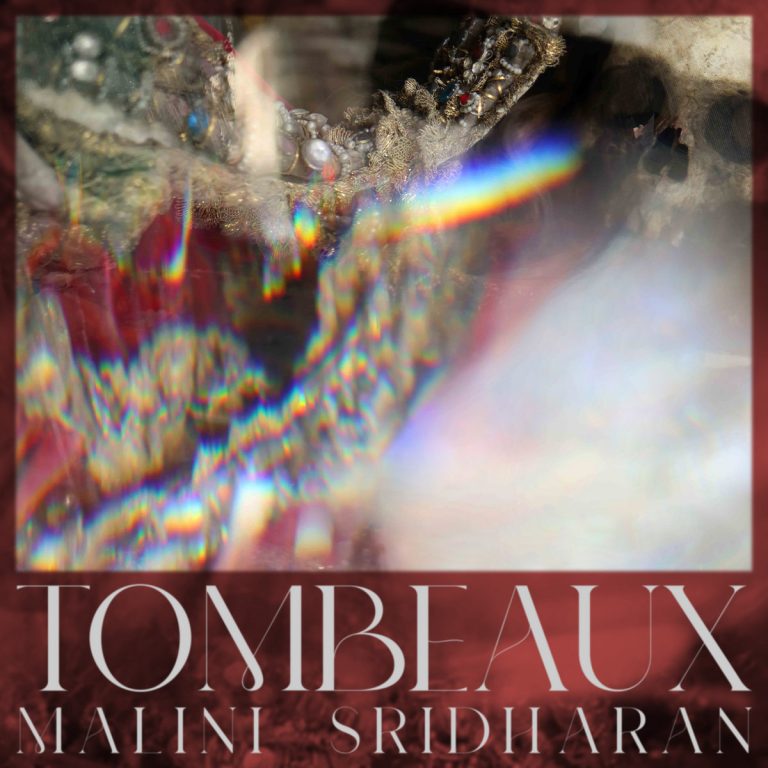Taking from the French word for “tomb” or “tombstone”, tombeaux are musical compositions (often composed for lute or other plucked string instruments) or poems that memorialise the death of a notable individual. They date all the way back to the 16th century and had something of a peak in the century after, so it’s safe to say they haven’t really been circulating in modern times (you’ll be forgiven if the word isn’t in your vocabulary). Some composers and artists in the past and current centuries have contributed to the vault though: Manuel de Falla, Pierre Boulez, Mona Lyn Reese, Arvo Pärt, and Maurice Ravel (who even got his own tombeau courtesy of Arthur Benjamin) have tombeaux among their repertoire.
You can now add Brooklyn-based composer and multi-instrumentalist Malini Sridharan to that list. It’s not a wholly surprising move from her either, as she’s previously taken inspiration from ancient and antiquated sources (her 2019 album The Shewings of Julian of Norwich took selections and interpretations of writings from the titular 13th century English religious mystic). On her third album, Tombeaux, Sridharan takes inspiration from death across a range of cultures and influences. Source material ranges from Ursula K. Le Guin’s Earthsea afterworld, to Pompeii, to The Odyssey, to the work of 16th-century Indian poet Mirabai, to even the death of Sridharan’s own grandmother.
Fitting to the original mediaeval style of the titular composition, Sridharan composes for a large ensemble of modern instruments that sound suitably of the age. Flutes flutter, woodwind trills, and brass bellows, creating a handsome enough baroque style. On opening track “Mote” you can hear her fondness of Indian classical music too as a sitar introduces the album. Julia Holter is in the producer’s seat on Tombeaux, and you can tell she put emphasis on each individual instrument being distinct and audible. Combined with Sridharan’s admirable compositions there’s plenty of opportunity to follow along, like the low bob of the bass and brass on “Rooftops” or the playful chirr of flutes towards the end of “Rivers.” The subject matter is on the dour side, but the music is adorned with more than enough pretty features.
Disappointingly it’s Sridharan that sounds the most separate, like she’s singing disconnected from the music both physically and even emotionally at times. While she does boast a high register that pleasingly evokes Joanna Newsom, when all the decoration of the compositions are dancing behind her (occasionally bringing to mind early Sufjan Stevens or the pagan psychedelic folk band Trembling Bells), something feels missing; she’s not mixed clearly above or within the music, so often the album feels like an ambitious college theatre production where narratives are difficult to follow and meanings are ambiguously inferred from what the music is doing.
The generous amount of inspiration also makes it a little tricky to latch onto a specific storytelling hook. Tombeaux is wanting of linear notes or even a lyric sheet so as to follow along with the music and help offer much needed clarity of each song’s purpose. A track like “Charon” stands out as it presents a clear picture of the ferryman heaving his vessel over the river, the patient bowing of the bass and cello like oars wading through dark water. On final track “Beam”, Sridharan is at her starkest and clearest over an unfussy arrangement of ebbing waves of strings; a melancholy and resignation appears in her voice as she questions “will I become another beam holding up the sky?”
There’s personal agony imbued in the music and lyrics here, but even for a short album (it runs just a few seconds shy of 25 minutes) it’s hard to find it clearly. “Down To Me” offers up soft requests for “just one more little taste” and “Charon” has a soul determined not to depart to the other side, but it’s hard to feel any emotional connection to these figures Sridharan presents. Death is being commemorated and explored on Tombeaux, and while the music can be intricate and exquisite at the best of times, it’s often too difficult to figure out whose death exactly we should be mourning from track to track.

